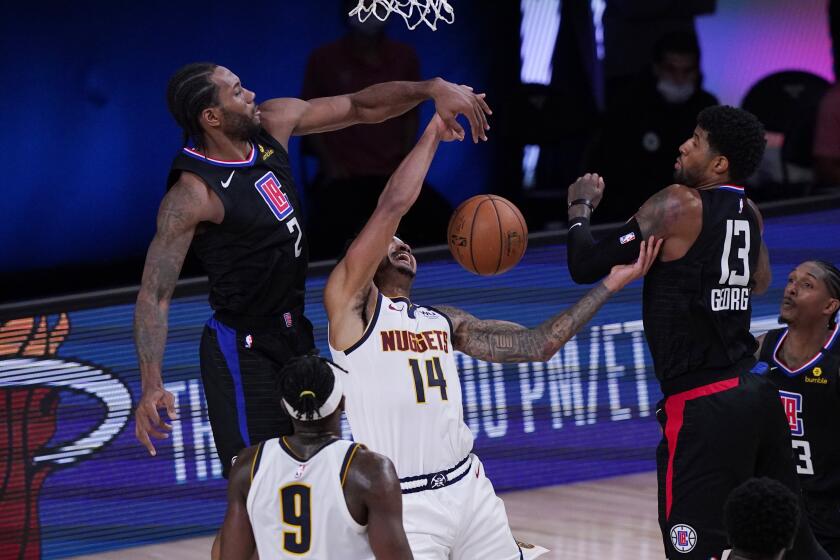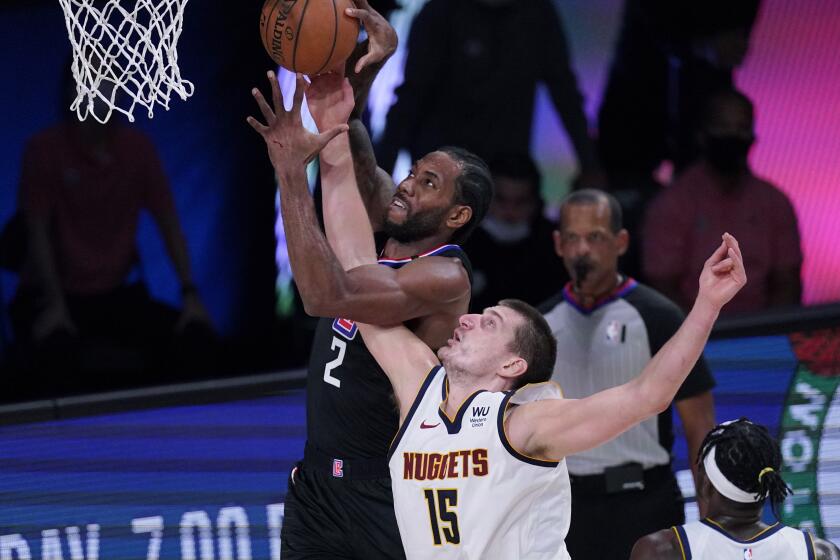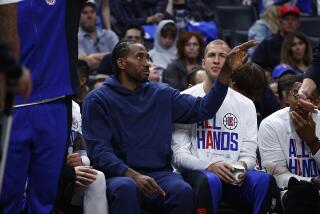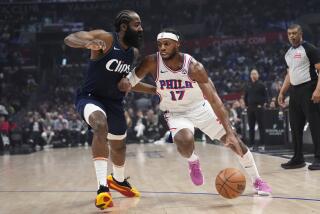The Clippers’ playoff collapse was historic. Will it hurt their 2021 title chances?
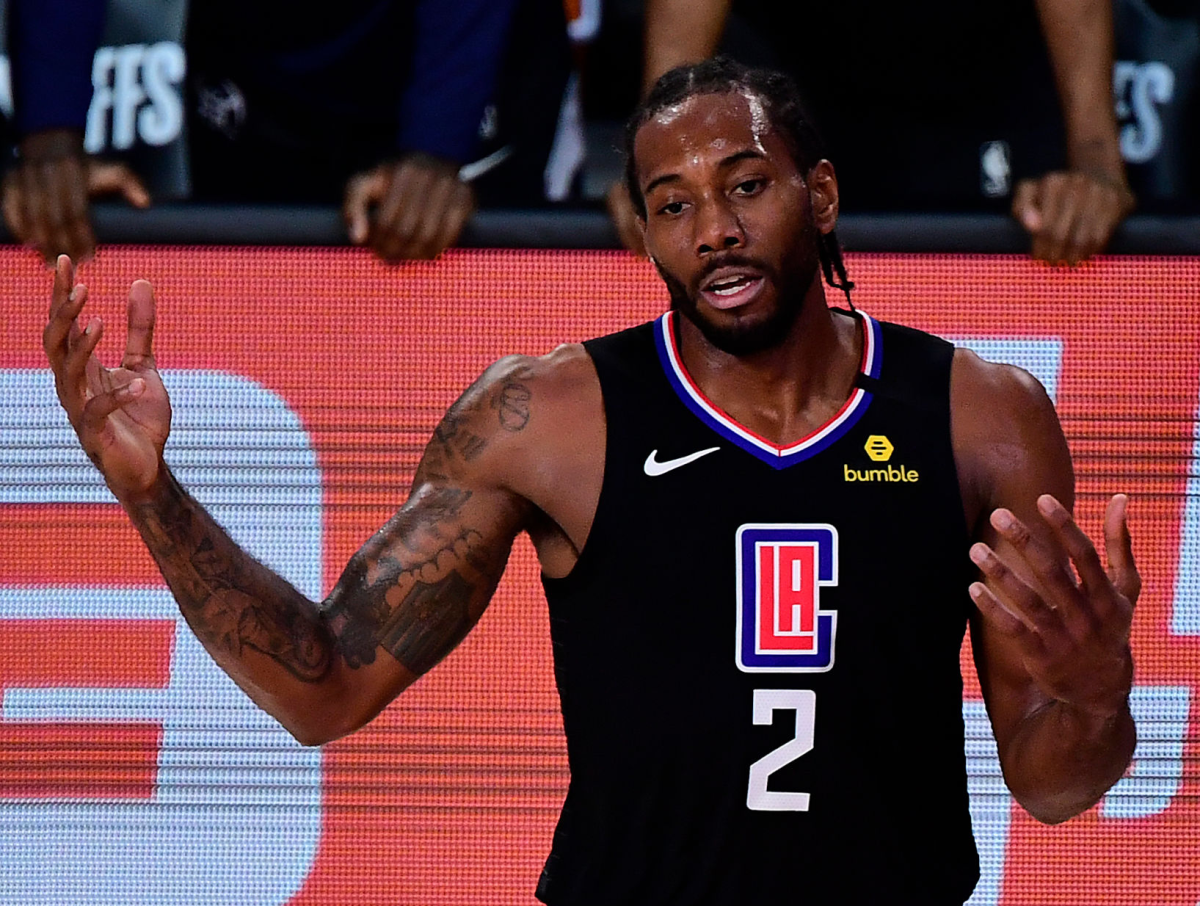
- Share via
In 2018, Australian and German academics interviewed 10 professional German athletes to learn what caused some of the worst moments in their respective careers. The researchers called the phenomenon “collective team collapse.”
The athletes revealed an interconnected web of factors that left them and their teams unable to return to their earlier, efficient form. Some originated before the game started — lack of focus, increased pressure, overconfidence, physical exhaustion — and made in-game triggers such as the accumulation of unforced errors, an opponent’s scoring and decisions by officials, feel worse. Once a collapse began, the study found a vicious cycle made it difficult to stop.
One volleyball player felt their thought process became blocked as pressure mounted. A soccer player said lack of accountability allowed teammates to deflect blame. Mistakes by one player led to team-wide insecurity, a field-hockey player said.
“Suddenly nothing works anymore,” a basketball player said. “And people get angry and yell at each other because of a mistake.”
Recovering from a collapse isn’t easy. And in the NBA, it rarely happens quickly.
A look at what the Clippers might look like this offseason going into next season.
With Tuesday’s Game 7 loss to Denver in the Western Conference semifinals, the Clippers became the 13th team in league history to lead a best-of-seven series 3-1 only to lose it. The Clippers nonetheless are projected to return as one of the top contenders next season, even in a West that some believe will be more difficult, one league executive told The Times. Yet history shows few teams have followed a meltdown by accomplishing more the next season.
Of the 11 teams to blow a 3-1 lead before this postseason — Utah also did it against Denver, in the first round — only four went as deep in the playoffs the next season and only two took a step further.
Philadelphia followed its collapse against Boston in the 1981 Eastern Conference finals by taking a 3-1 lead against the Celtics in the same round in 1982 before holding on to win Game 7 and advance to the Finals. And Golden State, after surrendering the first 3-1 lead in Finals history in 2016, claimed a championship in 2017.
They are the exceptions. Franchises that have blown 3-1 leads took an average of 3.6 years to reach the same round of the postseason and 6.2 years to go further. Beyond the bounce-back success of the 76ers and Warriors, it took the New York Knicks and Lakers only two years apiece to play deeper into the postseason after letting big leads disappear in 1997 and 2006, respectively.
Others weren’t so lucky. It took Philadelphia nine years to reach the Finals after collapsing in the 1968 conference finals. After San Antonio blew its chance in the 1979 conference finals, its Finals breakthrough didn’t occur until 1999.
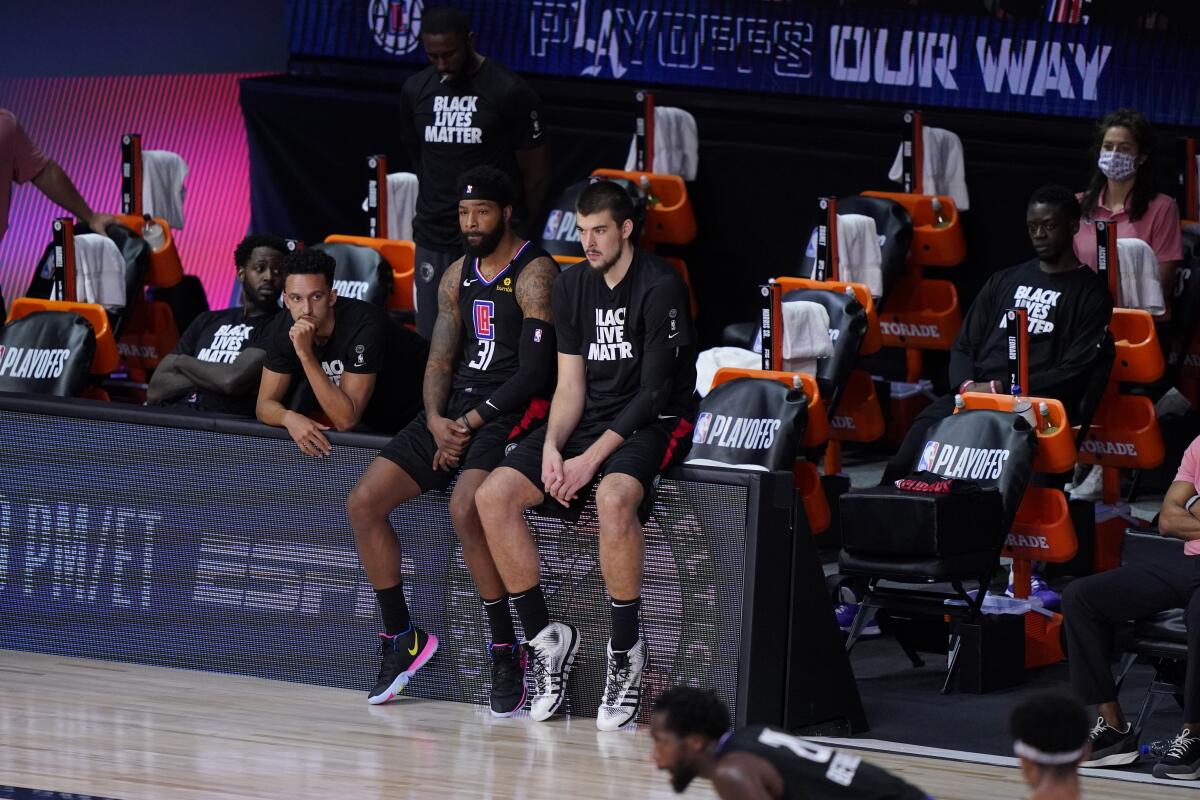
“We didn’t close it out. So we’re pissed off. We look forward to the opportunity to get back on the floor together. ”
— Lou Williams, Clippers guard
Those averages don’t include the teams still waiting to replicate or exceed their previous success.
Oklahoma City has yet to reach another West final after a 2016 collapse against Golden State that led superstar Kevin Durant to join the Warriors. After seeing their 3-1 lead over Houston disappear in 2015, the Clippers didn’t get back to the conference semifinals until this season. But Denver’s comeback kept the Clippers from advancing to their first conference finals.
“No More Excuses #ownit” backup forward Patrick Patterson wrote on Twitter after Game 7.
After a Clippers win in Game 4 put them on the verge of team history, “I was never comfortable, I can tell you that up front,” coach Doc Rivers said following Game 7. “I told our coaches that.”
Rivers has coached three teams to lose a 3-1 lead. In addition to the 2015 Clippers, his eighth-seeded Orlando Magic jumped top-seeded Detroit in the 2003 first round before fading.
Following another postseason collapse, the Clippers’ front office needs to work fast since star Kawhi Leonard can walk after next season.
Before coaching in the 14th Game 7 of his 21 seasons, Rivers said Monday that the crucible experience would benefit the victor.
“When you go through things like this and adversity and you come out of it on the other end, on the right end of it, it absolutely makes you a better team,” he said.
The question facing the Clippers is how, after coming out on the wrong end, they can return better next year. Their front office operates using a process-oriented approach and is expected to spend this offseason studying why and how they fell two rounds short of their championship ambitions despite leading Denver by double digits in each of the final three games.
For insight into how to rebound from a wrenching finish, they do not need to look far. Star forward Kawhi Leonard was only five seconds away from winning the 2013 championship with San Antonio when a three-pointer by Miami guard Ray Allen tied Game 6 of the Finals. The Spurs lost in overtime, then Game 7, as well. San Antonio rebounded from the crushing end to win the title next season by routing Miami.
“Us being able to know what to do in what situations when guys are playing us certain ways and seeing how we can get some execution down the stretch, guys knowing exactly where they need to be, in crunch time our situation when you can’t put the ball in the hole, those are big things that championship teams have,” Leonard said after Game 7.
In their interviews after the season-ending loss, the Clippers explained away their stunning defeats through poor conditioning, a lack of chemistry and an inability to execute under pressure. In doing so, they echoed many of the reasons cited by athletes a continent away.
“We didn’t close it out,” backup guard Lou Williams said. “So we’re pissed off. We look forward to the opportunity to get back on the floor together. ”
More to Read
Get our high school sports newsletter
Prep Rally is devoted to the SoCal high school sports experience, bringing you scores, stories and a behind-the-scenes look at what makes prep sports so popular.
You may occasionally receive promotional content from the Los Angeles Times.

